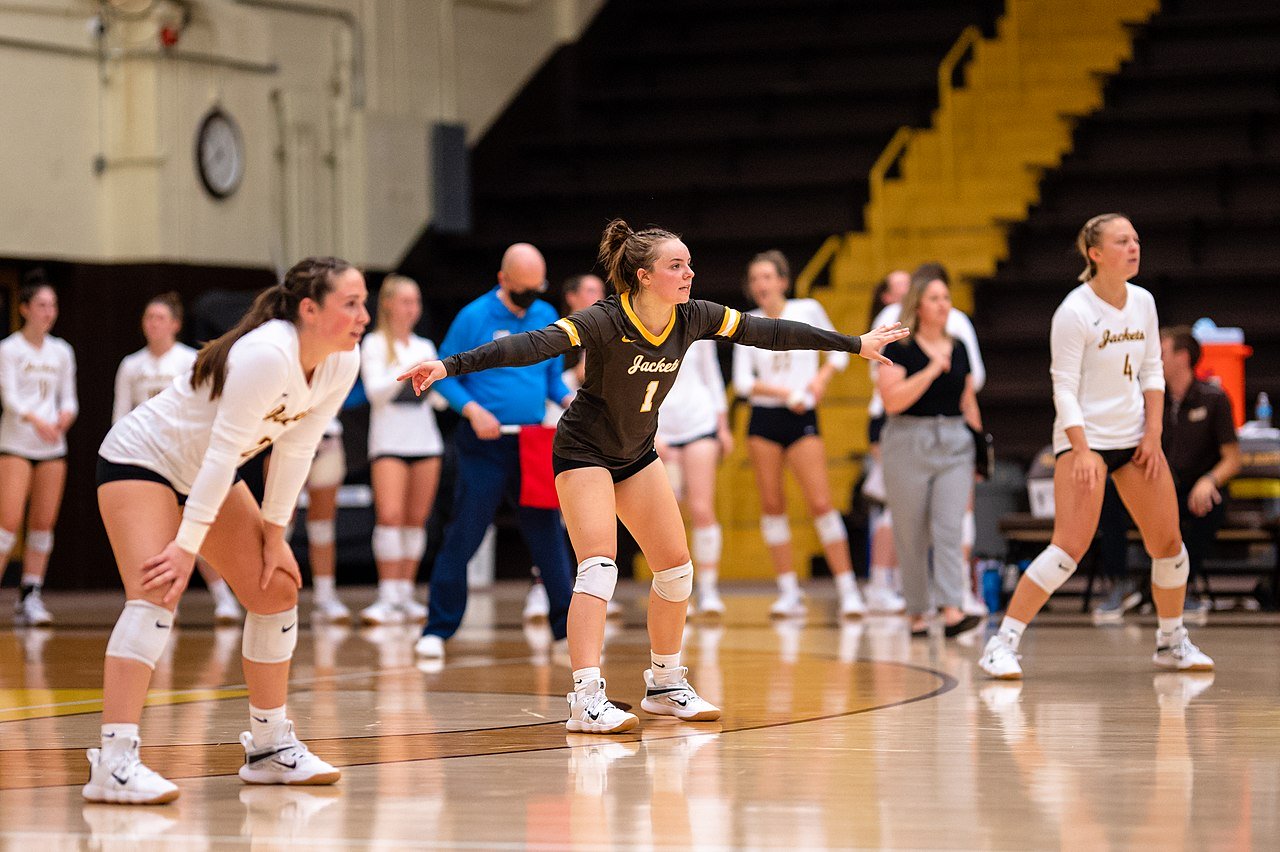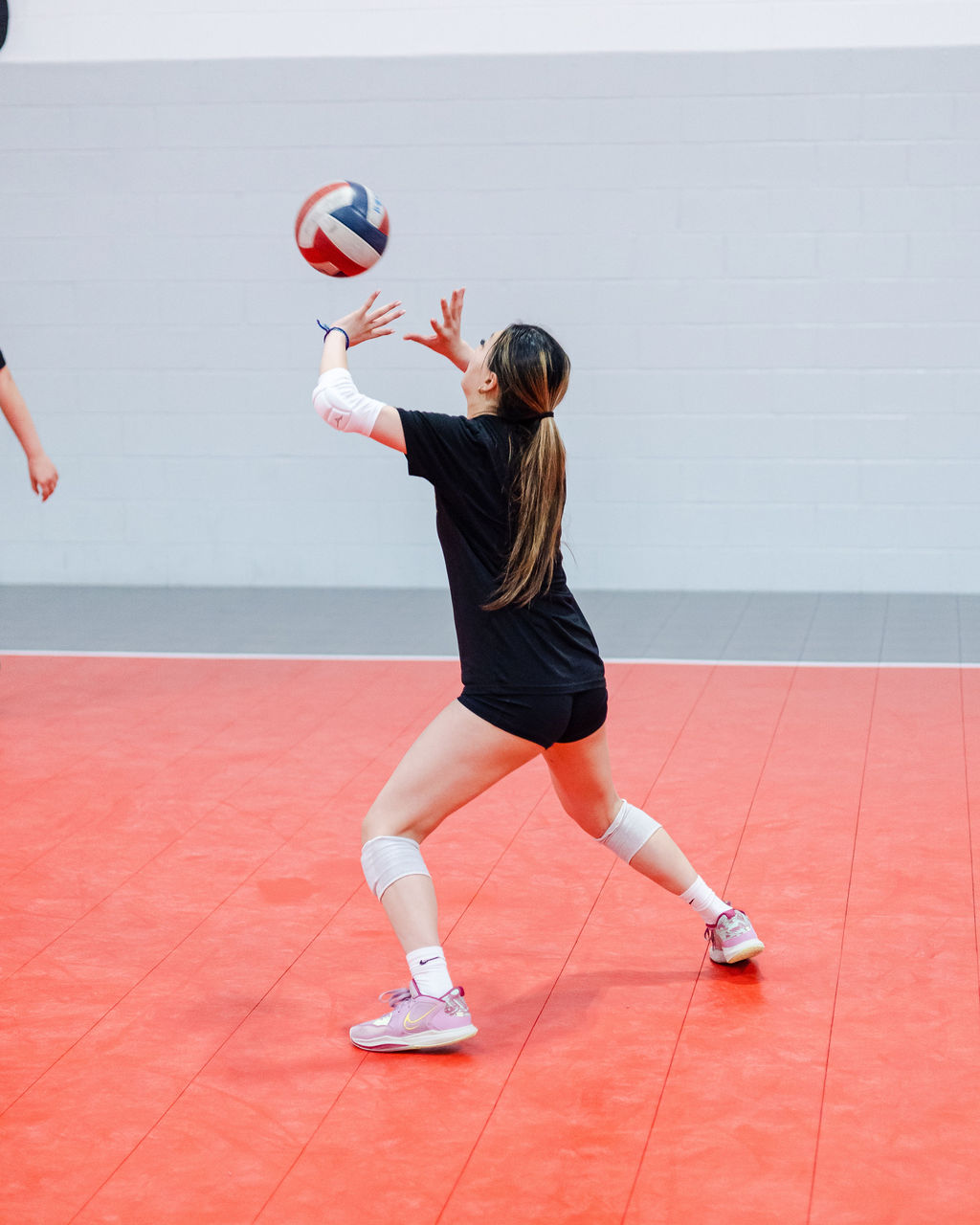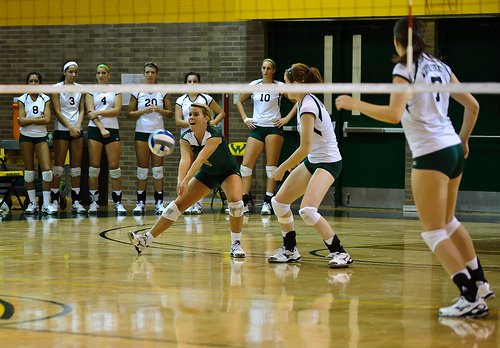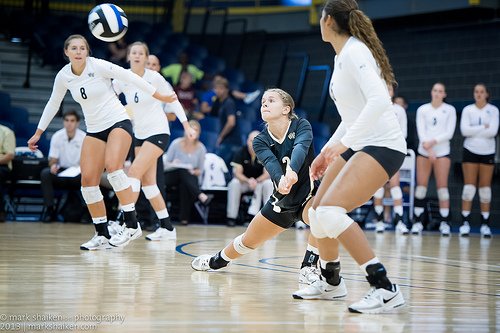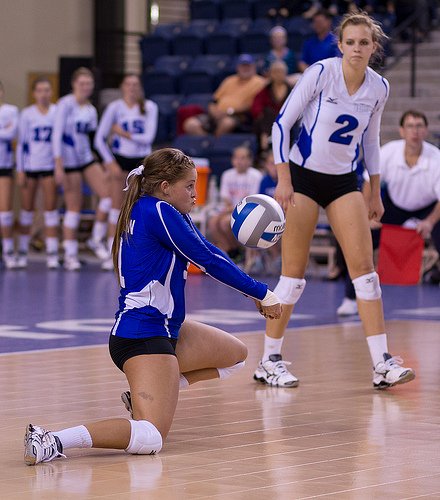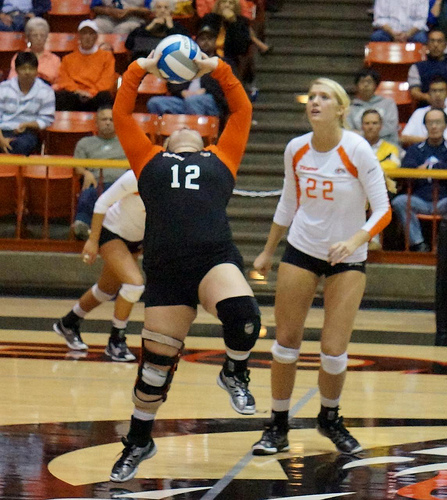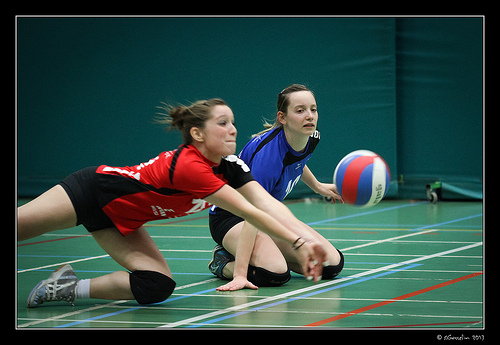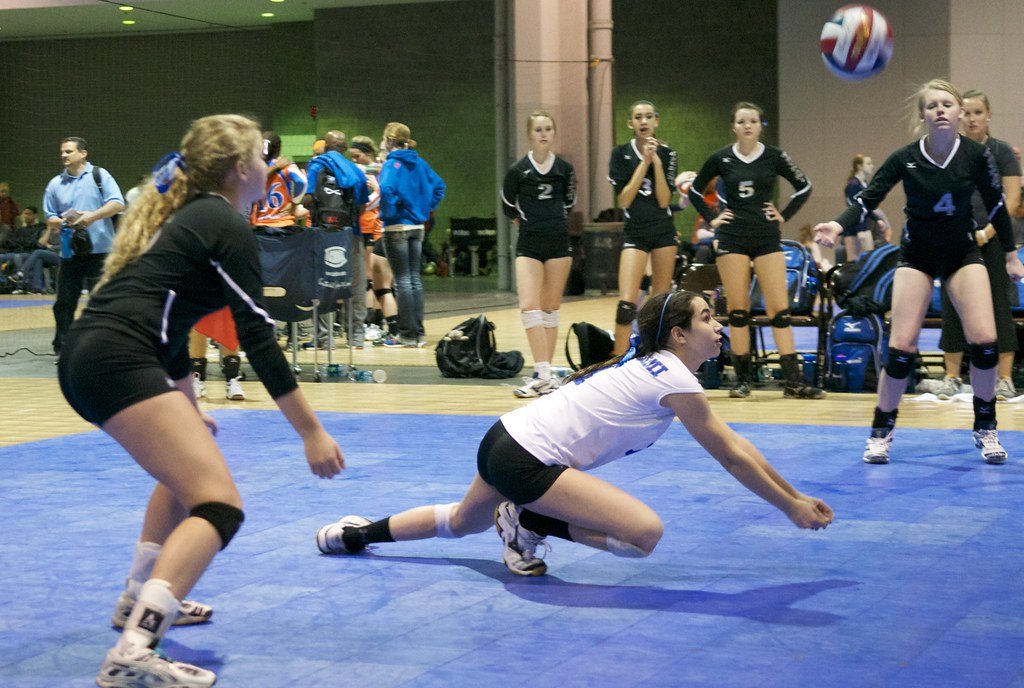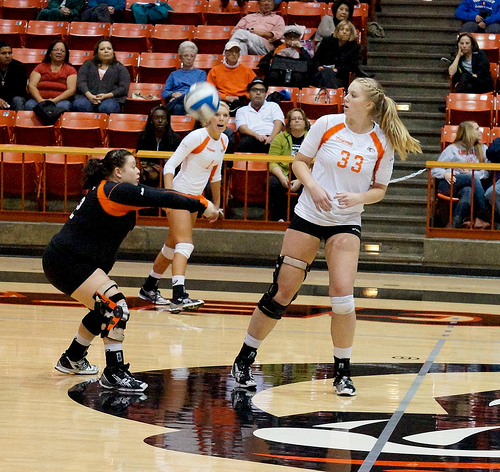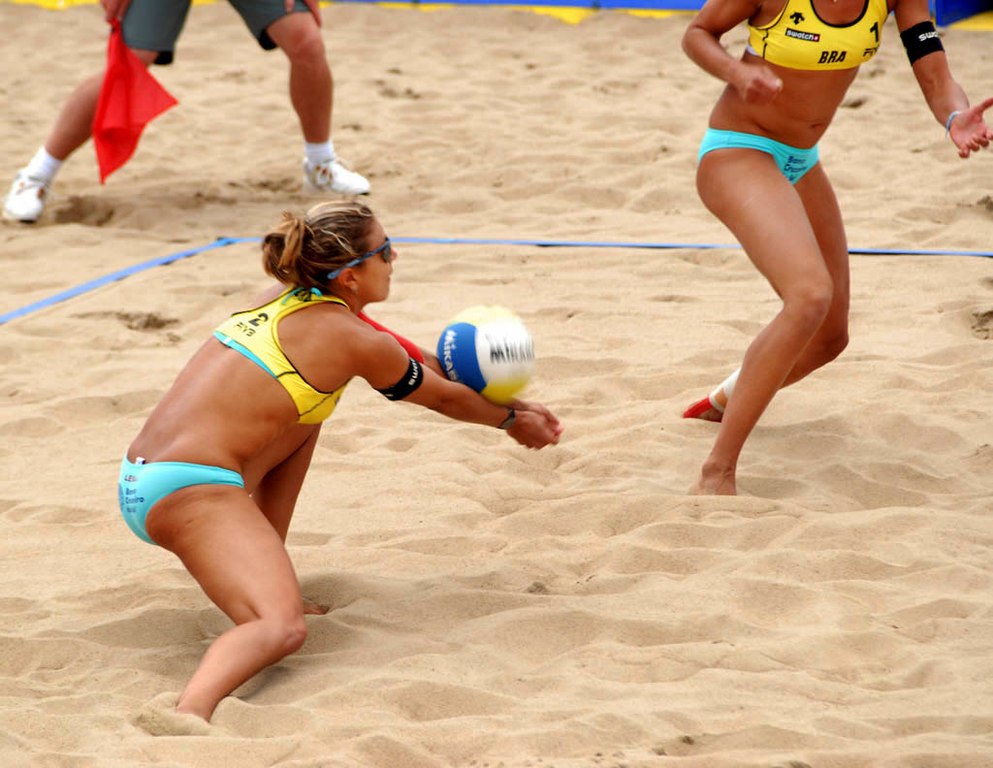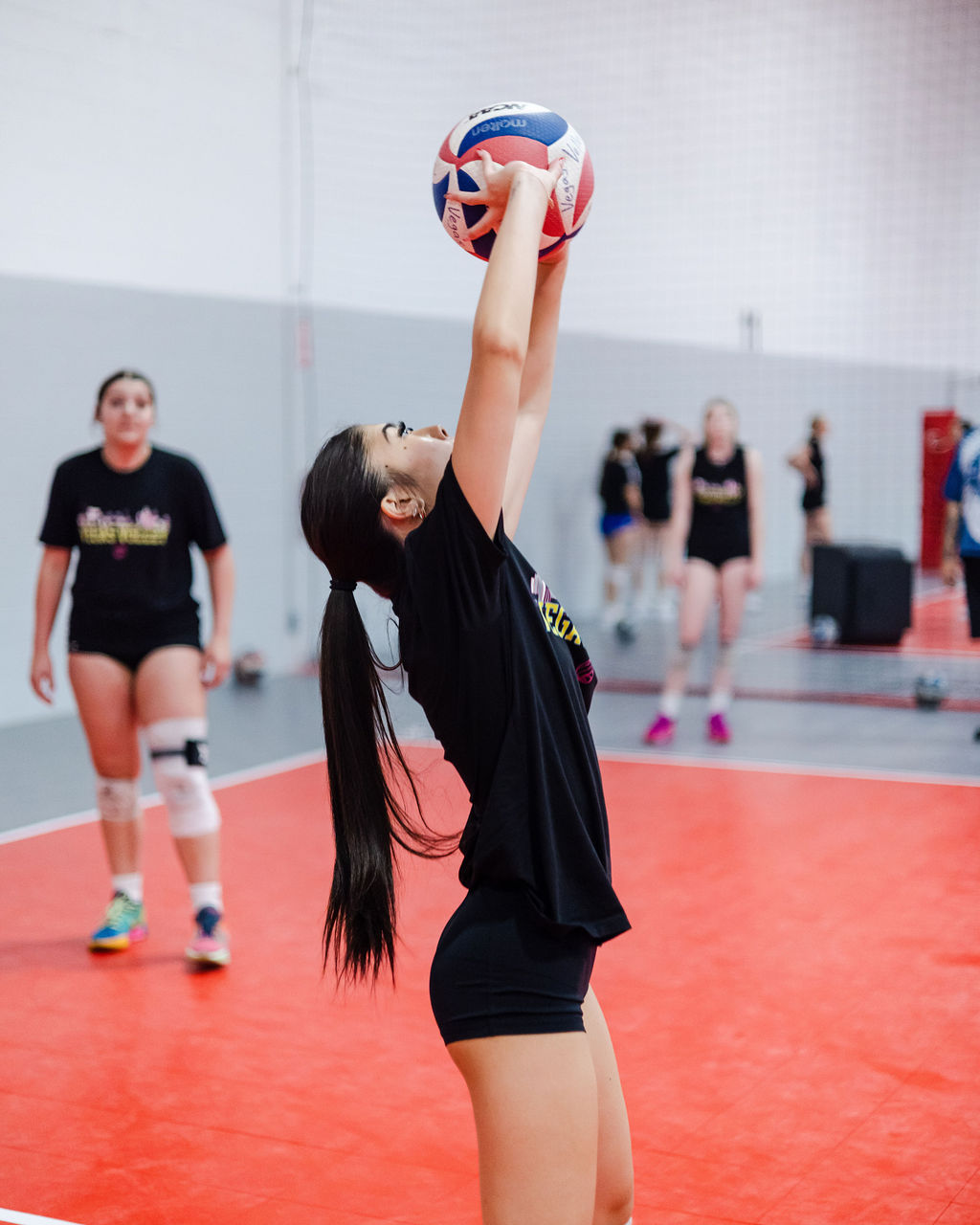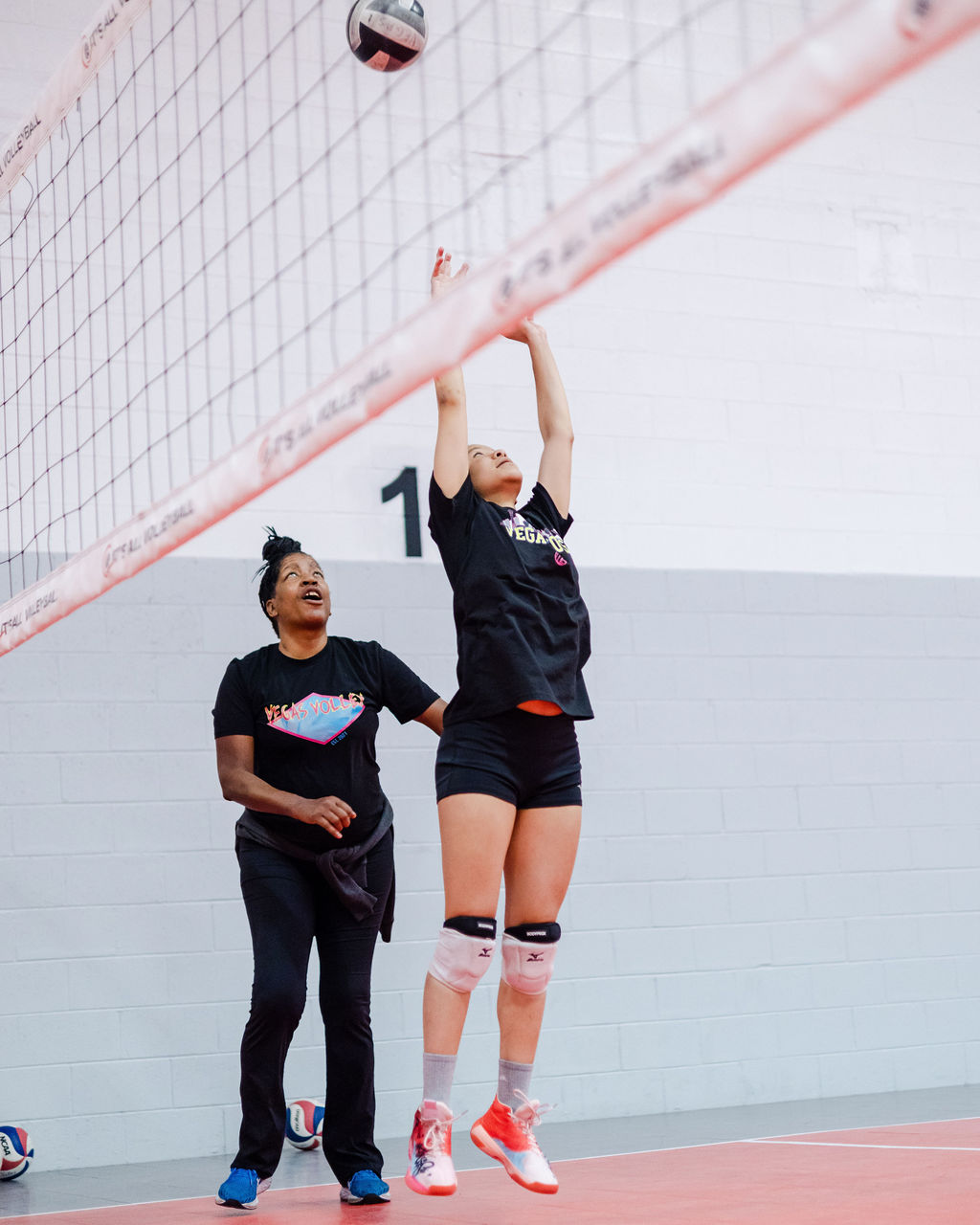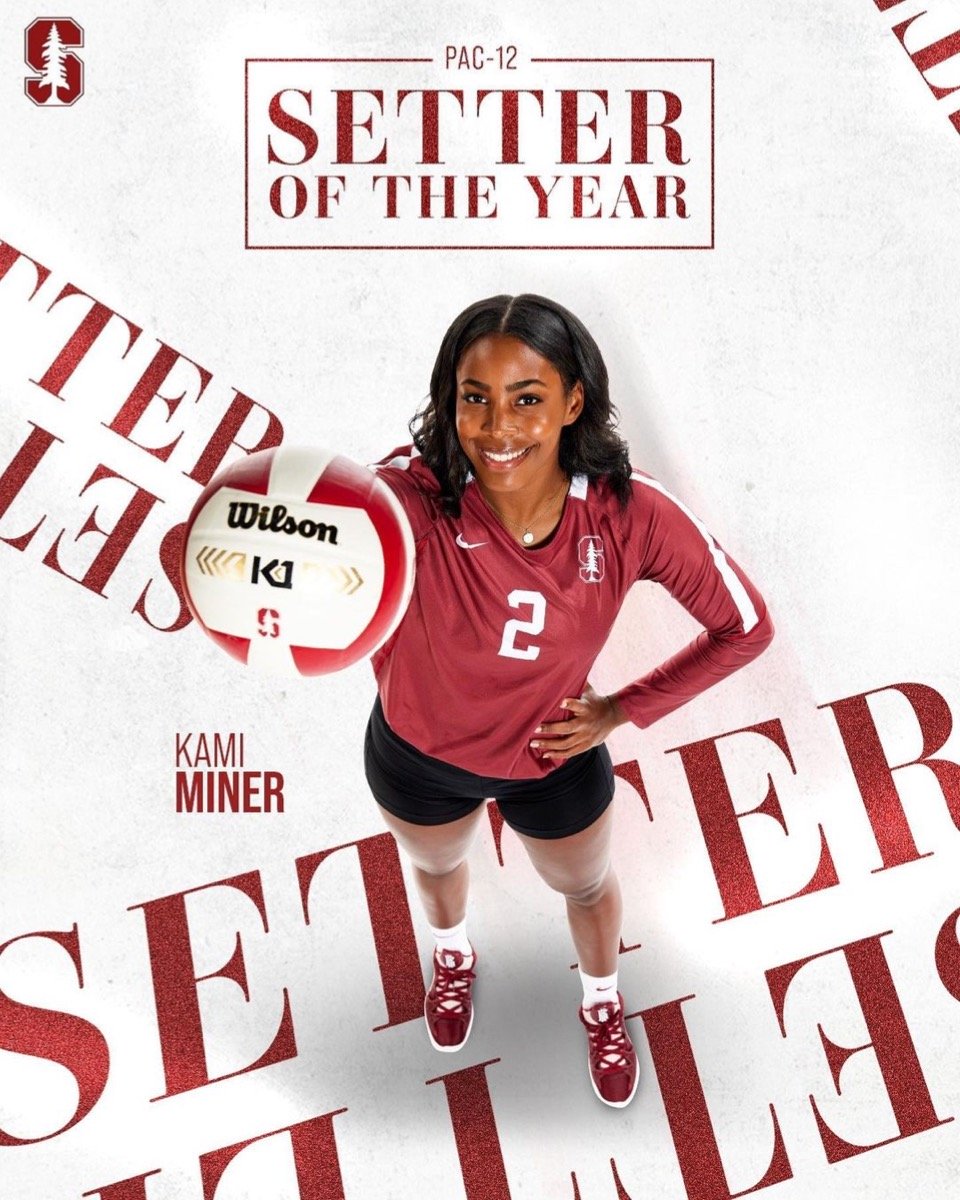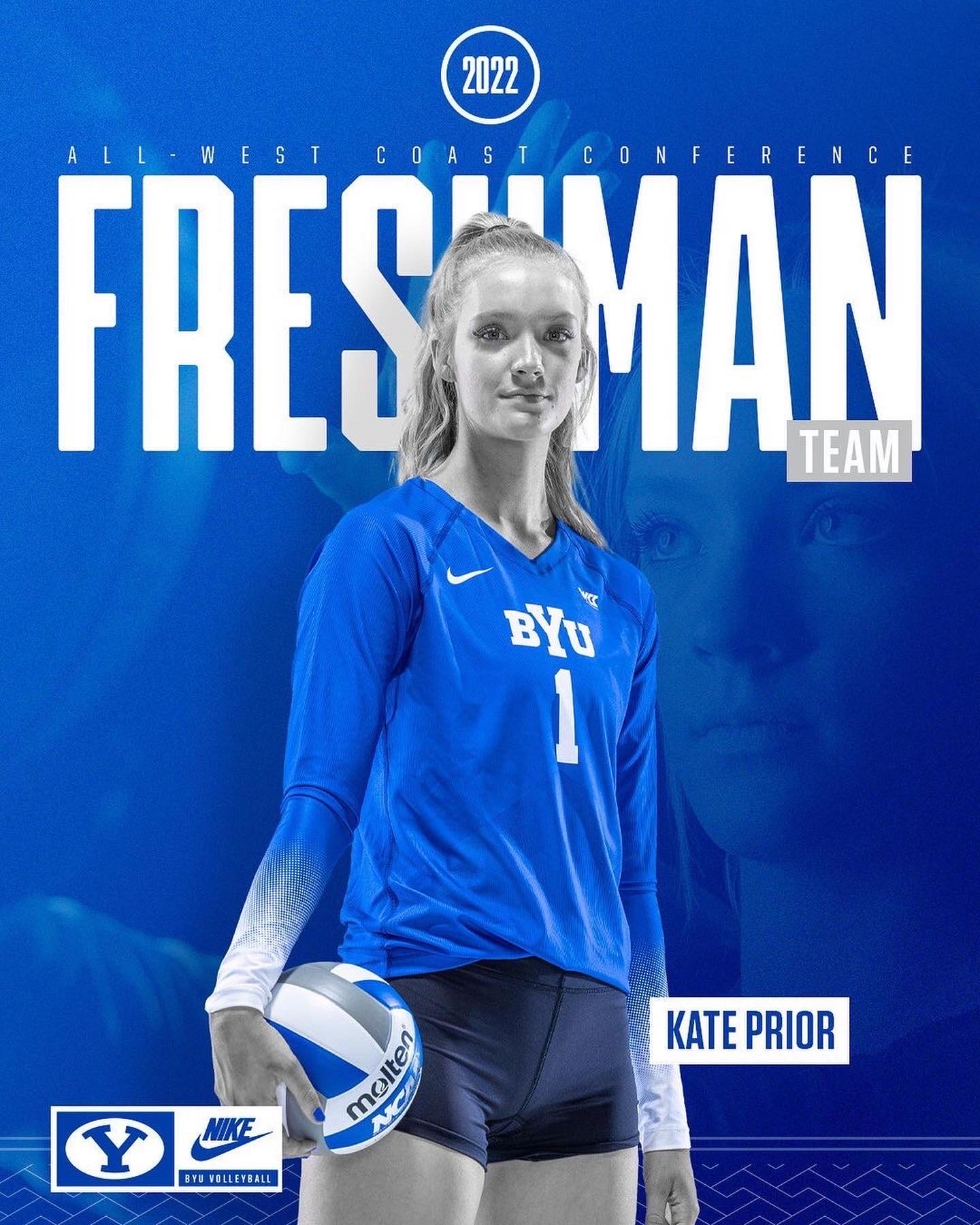- Improve Your Volleyball with Coach April
- Questions For Volleyball Players
- The Libero Volleyball Position FAQs
 Dear Volleyball Mom,
Do You Know What Sets My Private Volleyball Training Apart From Anyone In Vegas?
I invite You to read what my private volleyball training mission says before considering hiring me as a private volleyball coach because I'm not available for everyone.
Dear Volleyball Mom,
Do You Know What Sets My Private Volleyball Training Apart From Anyone In Vegas?
I invite You to read what my private volleyball training mission says before considering hiring me as a private volleyball coach because I'm not available for everyone.Frequently Asked Questions about the Libero Volleyball Position
I answer the most frequently asked libero volleyball position questions many players and coaches ask that will help you learn about the player responsibilities.
In the game of volleyball, every position has a unique or special responsibility that contributes to the team's overall strategy.
Dressed distinctively in a different colored jersey, the libero is quite easily recognizable and for some teams is a super important member of their volleyball team.
Do all teams need a libero? In my opinion, no but I'm sure there are quite a few coaches who would disagree with me but I tend to think outside of the box so like I said, that's my opinion.
The term libero translates to "free" in Italian.
The libero volleyball position was created
- to improve the overall level of play and increase rally lengths
- requires a player with speed
- quick reflexes
- excellent ball handling skills
- and a deep understanding of the game
In the following sections, I talk about the role, rules, skills, and the functions associated with the libero position in volleyball.
Whether you're a beginner trying to understand the roles in volleyball or an aspiring player looking to master the libero volleyball position, this guide offers in-depth knowledge and insight to answer all your questions.
The Role Of A Libero: Position, Skills and Standard Plays
The Libero Volleyball Position
As I mentioned earlier, the libero is an essential defensive specialist in volleyball responsible for improving the team's overall defense.
Lets Learn More About The
Libero Volleyball Position
The libero occupies the back row, ready to pass or dig at a moment’s notice inside their coverage area which usually includes middle-back and left-back on the court.
They can often be seen moving across the court to receive the serve or help in digging up an attack in a location far from where they started out at the beginning of the rally.
What Skills Are Required For The Libero Position?
Liberos are the backbone of a team's defensive strategy, and the position requires a specific set of skills:
1. Ball Control and Reception
The Libero must be able to react quickly to blocked balls and powerful spikes from the opposing team moving low to the floor digging the ball up before it hits the floor.
2. Quick Reflexes
The Libero must be able to react quickly to blocked balls and powerful spikes from the opposing team moving low to the floor digging the ball up before it hits the floor.
As the defensive captain, the Libero should both understand the team’s defensive strategy and coordinate defensive plays.
4. Agility and Speed
The ability to move quickly across the court to dig and pass balls is critical for liberos who often work to increase the area of the court that they can cover in defense.
The ability to move quickly across the court to dig and pass balls is critical for liberos who often work to increase the area of the court that they can cover in defense. Watch as Sierra Leone and Jacob digs to themself then hits to an area of the court that the other digger has to move to before digging the ball again.
5. Mental Toughness
The position is mentally challenging as a strong defense can significantly dictate a game’s flow.
What're Standard Plays Involving the Libero?
While liberos do not participate in offense directly, due to their inability to attack the ball above the net’s height when they are in front zone, they can set up the team's attack by accurately passing the received balls to setters or hitters.
Here are a few standard plays:
1. Serve reception:
Libero receives the serve and passes it to the setter to start an offensive play.
2. Digging:
Libero is often the player who "digs" or retrieves opposition spikes in the back row.
3. Covering:
In the event of a blocked attack, Liberos are responsible for digging the ball keeping it from touching the ground.
4. Setting:
In certain situations where the setter is unavailable for the second touch, Liberos will step in to set the ball, though under restrictions if they are in the front zone.
5. Serving
Be a tough server ready to score points in place of one of your middle blockers. If a team has a libero, that one libero can serve in place of one of the middle blockers on the team. The other middle blocker has to serve.
,center>
Be a tough server ready to score points in place of one of your middle blockers. If a team has a libero, that one libero can serve in place of one of the middle blockers on the team. The other middle blocker has to serve.
The Rules and Regulations: Limitations and Special Permissions for The Libero Volleyball Position
With a unique role comes a unique set of rules and regulations that govern the libero position.
Understanding them will not only clarify the libero's distinctive status on the court but also highlight how these rules impact the team's strategic dynamics.
Here are some key limitations and special permissions associated with the Libero:
The Libero Jersey Color
Liberos wear a jersey that contrasts the color of their teammates' jerseys. This stark contrast helps referees, players, and spectators easily identify the libero on the court.
Substitution Rules For The
Libero Volleyball Position
This "libero replacement” may occur at any time when the ball is not in play and does not have to be recorded or wait for a referee's whistle.
But, there has to be a rally (the period from the referee signaling for serve until the ball is out of play) between a libero replacing one player and then replacing another.
What Is The Libero Volleyball Position's Attacking Restrictions
So even though the libero has freedom in defensive play, there are strict limits on what they can to participate in offensive plays.
They cannot serve, spike, or block the ball.
Also, if the libero attempts to hit a ball while jumping...that's a fault and they'll get whistled. A libero can hit the ball over the net but they need to have their feet on the ground or if they jump the ball should be entirely above the top of the net at the highest point of their reach.
What Are The Setting Restrictions For The Libero Volleyball Position?
If the libero is in the front zone (even if partly), they may not set the ball using an overhand finger pass (volleying action) to a teammate who then completes an attack hit, if, at the moment of contact, the ball is entirely above the top of the net.
Want to hear that in English? Want to hear it? Hear it go...
What's The Rotational Order For
The Libero Volleyball Position?
Despite their free-replacement ability, liberos still factor into the team's rotational order.
When the libero comes off the court, the player they replaced must return before another player goes in for them.
Becoming Successful In The Libero Volleyball Position
The libero position is one of the most challenging in volleyball, requiring a unique mix of physical abilities, mental strength, and I often like to say a bit of acrobatic ability for how they have to dive everywhere as long as a deep understanding of the game.
As a libero, you must develop certain *skills* and constantly reinforce them through effective *drills*:
Ball Control:
Being able to control the ball is absolutely fundamental.
Drills improving control over the ball, especially with bumping and setting and digging hard hits, should be a core part of any libero's training regimen.
Quick Reflexes and Agility:
As a libero, you'll need to dive, roll, and change directions quickly.
Agility and reflex drills will help build these capabilities.
Serving:
Even though liberos traditionally don't serve, updated rules now allow them in certain leagues.
Practicing powerful and accurate serves can add another weapon to your arsenal.
Mindset
Apart from the skills, the *mindset* also plays a significant role
Mental Resilience
Volleyball, every point matters.
As a libero, you'll often handle the pressure of prevent someone from scoring or rebounding from a missed point. Mental toughness and resilience are key.
Team Player:
The libero is often referred to as the 'defensive captain'.
You should have a deep understanding of team strategies and be able to communicate effectively with your teammates.
Constant Learning:
Volleyball is a dynamic sport.
A successful libero never stops learning and always strives to understand the game more deeply.
Common Challenges For The Libero Volleyball Position and Tips to Overcome Them
Being a libero entails overcoming specific *challenges*:
1. Pressure to Prevent Points:
It might seem enormous mental weight to carry, but remember, it's a team game. Relax, stick to your training, and trust your teammates.
2. Limited Offensive Role:
The rule restrictions might be frustrating, but remember, your impact is immense in the defense. Focus on what you can do rather than what you can't.
3. Standing Out for the Wrong Reasons:
The unique jersey can bring a lot of attention to you making you a focal point, but I tell my liberos to use this visibility positively. I repeatedly tell them to let your actions and skills define you, not your jersey color.
To stand out as a libero, you should consistently work on enhancing your skills and mental toughness, always keep learning, be a good communicator, and never be discouraged by the challenges.
Answers To Frequently Asked Questions About
The Libero Volleyball Position
Q: How is the libero volleyball player different from other players on the team?
A: The libero volleyball player is designated as the team's defensive specialist and is often the shortest and fastest player on the team. They wear a contrasting color jersey to distinguish themselves from their teammates and have specific rules and restrictions that differentiate them from other positions.
Q: How is the libero volleyball player different from other players on the team?
A: The libero volleyball player is designated as the team's defensive specialist and is often the shortest and fastest player on the team. They wear a contrasting color jersey to distinguish themselves from their teammates and have specific rules and restrictions that differentiate them from other positions.
Q: What are the restrictions for the libero player in terms of hitting and attacking?
A: The libero player is prohibited from hitting or attacking the ball when positioned in the front row. They are primarily focused on defensive skills, such as digging and passing, and are not allowed to execute offensive attacks from the front row.
Q: Does the libero volleyball player have specific responsibilities during a game?
A: Yes, the libero volleyball player has several important responsibilities during a game. They specialize in defensive skills, consistently making digs and precise passes to set up their teammates for successful attacks. Their agility and ball control make them a valuable asset in the backcourt.
Q: Can the libero player be substituted during a game?
A: Yes, the libero player can freely enter and exit the game without counting towards the traditional substitution limit. This allows teams to strategically optimize player rotations while maintaining a strong defensive presence on the court.
Q: How does the libero player impact the team's defensive strategy?
A: The libero player plays a significant role in the team's defensive strategy. With their exceptional ball control and quick reflexes, they excel in making digs and keeping rallies alive. Their presence strengthens the team's defensive capabilities, reducing the opponent's scoring opportunities.
Q: What are some key skills that a libero volleyball player should possess?
A: A libero volleyball player should have excellent ball control, quick and agile movements, and exceptional defensive skills. They should be proficient in making accurate and controlled digs and passes, allowing their team to maintain offensive momentum.
Q: How does the libero player contribute to the team's transition from defense to offense?
A: The libero player's quick reactions and precise passing play a crucial role in the team's transition from defense to offense. By delivering accurate sets to their teammates, they facilitate quick and efficient transitions, enabling the team to execute powerful attacks.
Q: Can the libero player set the ball to any player on the court?
A: Yes, the libero player can set the ball to any player on the court. They often step in to set when the setter has dug the ball, ensuring that the team can continue their offensive plays seamlessly.
Q: What are some common strategies or tactics involving the libero player?
A: A common strategy involving the libero player is for them to set the ball to the front or back row when the setter is unable to do so. This allows for a versatile offensive approach and keeps the opponent's defense guessing.
Q: How does the libero player impact the team's overall performance?
A: The libero player's specialized defensive skills and ball control significantly impact the team's overall performance. They provide a strong defensive presence, allowing the team to maintain longer rallies, frustrate opponents with their exceptional digging, and set up successful attacks for their teammates.
Remember, while these answers provide general insights into the libero volleyball player position, specific rules and strategies may vary depending on the league, level of play, and individual team dynamics.
SUSCRIBE
To My Email Newsletter Below!
Frequently Asked Volleyball Questions About The Libero Volleyball Position:
Where Do You Go From Here?
I got you! Here's where you need to go now! Here are three options:
- Learn more about the various Positions in Volleyball by reviewing the Related Links below.
- Follow the suggested reading on our Sitemap page Learning How To Play (Sitemap)
- Or visit the pages in the Volleyball Positions section in the drop down menu at the top of the page.
Read more about volleyball questions that I answer about other volleyball skills.
From Lady Vol to Legend: Coach April Produces Powerful Passionate Players...is that you?
What Are You Looking For?

Hi there!
Thanks for stopping by. Hope you learned something today that will help you reach your volleyball goals.
Be sure to subscribe to my email newsletter so you can learn more each week!
Stay strong! Stay motivated!
-Coach April

SUSCRIBE
to my email newsletter below!
Vegas Volleyball's Unsung Heroes: Celebrating Moms with Peace Love Volleyball Shirts
Ready to energize your volleyball mom journey?
Subscribe to my 'Producing Powerful Passionate Peaceful Players' email list above on ImproveYourVolley.com.
You'll receive energy-boosting tips, exclusive insights from me, Coach April Chapple on maintaining momentum in volleyball.
Let's power up the Vegas volleyball scene together!
Recent Articles
-
Frequently Asked Libero Volleyball Position Questions Answered
Apr 14, 25 08:10 PM
I answer the most frequently asked libero volleyball position questions many players and coaches ask that will help you learn about the player responsibilities. -
Coach April's Peace Love Volleyball Phrases For T-Shirts Honor Moms
Apr 13, 25 03:49 PM
Whether on the court or in everyday life, April Chapple's volleyball phrases for t-shirts are serving inspiration for players and moms, one message at a time. -
What Is A Setter In Volleyball? My Setting Guide With Answers To FAQs
Apr 13, 25 12:36 AM
Learn what a volleyball setter is from a champion coach. Get expert insights, training tips, and proven strategies for volleyball's most strategic position.
